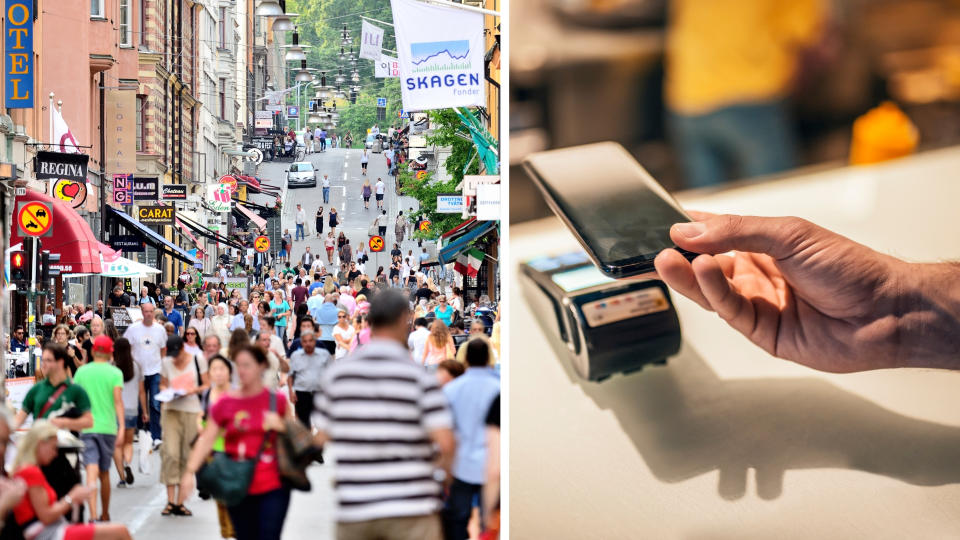Sweden’s warning: ‘Our cashless society is no utopia’

For decades, Sweden and its Scandinavian neighbours have appeared the perfect countries – wealthy, innovative and socially and environmentally aware.
But Sweden is now sounding the alarm on the dangers its largely cashless economy poses to its society.
“For hundreds of years, the public has been offered central bank notes and coins. If cash stops working, it would leave all individuals to rely on the private sector alone to get access to money and payment methods,” the deputy governor of the Central Bank of Sweden, Cecilia Skingsley said in a piece for the World Economic Forum this month.
It means Sweden will need to make some hard decisions, she continued.
The first option is to let the cashless revolution occur unchallenged and accept that the general public will no longer have access to central bank money. In this scenario, the payment market will need to be regulated in new ways to ensure the payment market remains safe and efficient.
The second option is for the central bank to issue a digital currency – an e-krona.
“Its impact on the financial system depends on how large the demand for the e-krona is in different circumstances. Whether it will earn interest or not is another key question,” Skingsley said.
“If the e-krona offers zero interest, which makes it equivalent to cash in this regard, it could have negative effects for conducting expansionary monetary policy if interest rates in the economy are low. On the other hand, an e-krona with interest could become a new policy tool for the central bank.”
Improvements in technology herald changes in preference, she said – people want to do what’s easiest.
RBA says Australia is heading in a similar direction
Australia has reached a “turning point” in which it’s now easier than it has ever been to picture a world where cash becomes a “niche payment instrument”, the governor of the Reserve Bank of Australia, Philip Lowe said in Sydney on Monday.
“The shift to electronic payments is occurring quite quickly and it is likely to continue,” he added.
Since 2010, the number of times the average Australian goes to an ATM has fallen from 40 to 25, while electronic payments are up from 100 per year to 500.
“I expect the shift to electronic payments will continue.
“If almost all payments are electronic, then the cost of making these payments matters more than it used to. The electronic system needs to be as efficient as it can be,” Lowe said.
This is where there work needs to be done.
Although Lowe predicts the cost of electronic payments will continue to fall, there are still costs involved in detecting and preventing fraud, delivering functionality and convenience.
“How these costs are managed and who pays for them will have a significant bearing on the efficiency of the overall system.”
Make your money work with Yahoo Finance’s daily newsletter. Sign up here and stay on top of the latest money, news and tech news.
Also read: The $834m reason Aussies are ditching private health insurance
Also read: You can now use PayPal to pay for your car rego, and 17 other things

 Yahoo Finance
Yahoo Finance 
